What is the best substitute for Brandy ?
What is the best brandy substitute? Are you looking to elevate your culinary creations but don’t have any brandy on hand? Don’t worry, we’ve got you covered! In this article, we are going to dive into the world of brandy alternatives and introduce you to some perfect brandy substitutes. Substitutes that will bring a whole new level of flavor to your dishes.
When considering these substitute ingredients, we thought you would appreciate both alcoholic and non-alcoholic options. So here goes, try using – Whiskey, Rum, Wine, Vodka, Gin, Bourbon, Apple or Pear Juice, Non-alcoholic Brandy Extract, White Grape Juice, Fruit Preserves or Jams, Orange or Lemon Juice, Stock or Broth.
Remember to adjust the quantities and experiment to find the best substitute for your specific recipe. Each alternative may work differently depending on the flavors you’re trying to achieve.
What is brandy?
Brandy is a delightful distilled spirit made from fermented fruit juice or wine. It’s known for its rich, warm, and fruity flavors. Now, let me give you a quick history lesson on this wonderful drink.
Brandy’s origins can be traced back to ancient civilizations, with the first recorded production dating back to the 9th century. It was initially created as a way to preserve wine by distilling it. This made it less perishable and easier to transport. The word “brandy” actually derives from the Dutch word “brandewijn,” which means “burnt wine,” referring to the distillation process.
Throughout history, different regions in Europe became famous for their brandy production. Cognac in France and Armagnac in Gascony are renowned for their exquisite grape-based brandies. Meanwhile, countries like Spain and Portugal are known for their fruit-based brandies, including Pisco and Aguardiente.
Brandy has evolved from a practical means of preserving wine to a sophisticated and diverse spirit enjoyed around the world. It’s aged in wooden barrels, which imparts unique flavors and characteristics. Each brandy variety has its own distinct profile, making it a versatile spirit for cocktails and sipping.
From whiskey to rum, and even fortified wines like Madeira or sherry, we’ll explore the different options available. We will also discuss how they can be used to enhance your favorite dishes. So, whether you’re whipping up a boozy sauce for your steak or adding a touch of sophistication to your dessert, these alternatives will not disappoint. With their unique flavors and characteristics, they can easily stand in for brandy in any recipe.
So, if you’re ready to take your culinary skills to new heights, join us as we uncover the finest brandy alternatives. Alternatives that will leave your taste buds longing for more. Get ready to impress your guests with incredible flavors and mouthwatering meals!
Okay, before we look at your brandy substitute options, let’s deal with that empty cupboard situation!
Where can I buy Brandy?
If you want to be more prepared, and ensure you don’t run out of brandy, then you should stock up now.
Nowadays, you can purchase brandy in liquor stores. But there are also many great non-alcoholic options on the market. You can purchase them in-store, or if you prefer you can also purchase brandy syrup on-line.
So why not jump on and place your order today.
STOCK UP NOW!
Super-strength Brandy Flavored Syrup
Use this premium syrup as a substitute for brandy. Add to your baked breads and pies for a warm brandy flavored hit.
Non-alcoholic, Gluten-free, Kosher. Made in the USA.
What can I substitute for Brandy?
Here are some of the best ingredients to substitute the flavor and role that brandy provides in your recipes.
- Whiskey
- Rum
- Wine
- Vodka
- Gin
- Bourbon
- Apple or Pear Juice
- Non-alcoholic Brandy Extract
- White Grape Juice
- Fruit Preserves or Jams
- Orange or Lemon Juice
- Stock or Broth
Brandy substitutes
Whiskey as a Brandy substitute
Whiskey can be a fantastic substitute for brandy in cooking and baking, especially if you’re looking for a rich and complex flavor. While they have distinct tastes, both spirits share some similarities in their deep, caramel-like notes. Just keep in mind that whiskey tends to be a bit stronger than brandy. Therefore, you might want to use it more sparingly or dilute it slightly with water if the recipe calls for a significant amount of brandy. It can add a delightful twist to dishes like sauces, desserts, and even marinades. Experiment with it, and you might discover some delightful new flavors.

Rum as a Brandy substitute
Rum can be a great substitute for brandy in your cooking and baking endeavors. While they have different flavor profiles, both spirits bring a warm and sweet undertone to dishes. Rum’s molasses and tropical notes can add a unique twist to your recipes. Just be mindful of the strength of the rum you’re using, as it can vary from light to dark. Adjust the quantity accordingly, and you’ll find that it works wonderfully well in recipes like fruitcakes, sauces, and even flambéed desserts. So, go ahead and give rum a try in your culinary experiments.
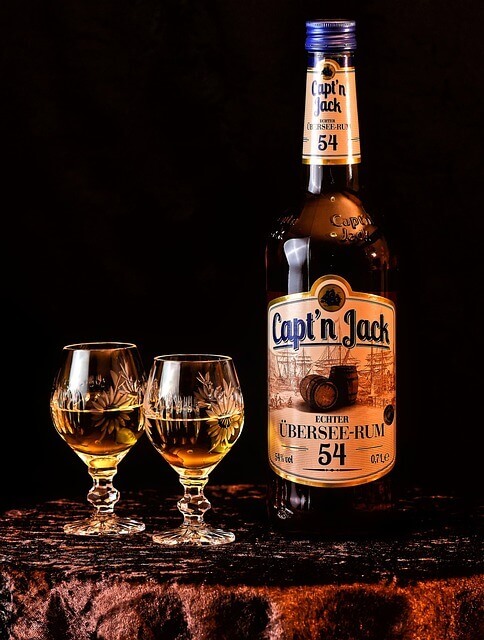
Wine as a Brandy substitute
Red or white wine can indeed serve as a good substitute for brandy in cooking and baking. Here’s a quick breakdown:
- Red Wine: If you’re looking for a substitute in savory dishes, especially those that require a rich and deep flavor, red wine can be an excellent choice. It adds a fruity and robust essence to sauces, stews, and marinades. It pairs particularly well with red meat dishes. Just remember to choose a red wine that you enjoy drinking, as the flavor will concentrate during cooking.
- White Wine: White wine, on the other hand, is perfect for recipes that require a lighter and slightly acidic touch. It’s great for creamy sauces, seafood, and poultry dishes. The crisp and refreshing notes of white wine can brighten up your recipes, providing a different but delightful flavor compared to brandy.
In both cases, you may need to adjust the quantity since wine has a lower alcohol content than brandy. Start with a smaller amount and taste as you go to ensure the right balance. Wine can add a wonderful complexity to your dishes.

Vodka as a Brandy substitute
While vodka can be used as a substitute for brandy in cooking and baking in certain recipes, it’s essential to keep in mind that they have quite different flavor profiles. Vodka is a neutral spirit with a clean and crisp taste, while brandy has a rich and fruity flavor. Here’s when vodka can work as a substitute:
- Flavor-Neutral Recipes: Vodka is a good choice when you need the alcohol content without introducing a particular flavor. For dishes like pie crusts or some sauces where you want the alcohol for deglazing or flambéing but don’t want to alter the taste significantly, vodka can be a suitable option.
- Alcohol Content: Vodka typically has a higher alcohol content than brandy. Therefore, you may need to use it sparingly. Consider diluting it with water to achieve a similar alcohol level.
- Baking: In some baked goods like cakes or pastries, vodka can be used to moisten the dough or batter without imparting a distinct flavor.
Keep in mind that vodka won’t provide the same depth and complexity as brandy, so the final result may be slightly different. It’s a more neutral choice when you want the alcohol without a specific flavor influence. Experimenting with vodka as a substitute can lead to interesting culinary discoveries for your food.
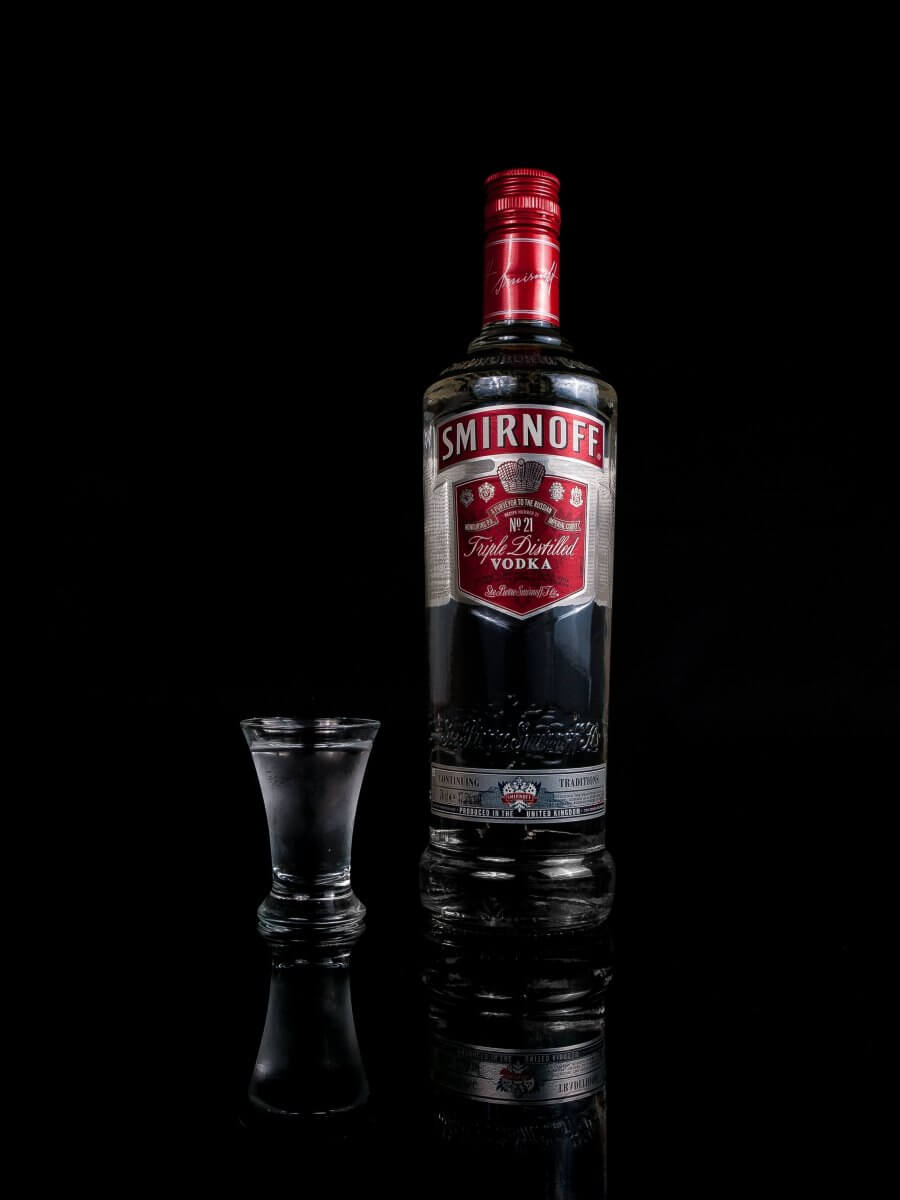
Gin as a Brandy substitute
Gin, while quite distinct from brandy in terms of flavor, can still be used as a substitute in certain cooking and baking recipes if you’re looking to experiment with different tastes. Here’s how gin can work as a substitute:
- Floral and Herbal Notes: Gin is known for its botanicals, which can bring unique floral and herbal notes to your dishes. This can be particularly interesting in recipes where you want a more aromatic and complex flavor profile.
- Savory Dishes: Gin can be suitable for savory dishes, like sauces for seafood or poultry. Dishes where the herbal qualities can complement the overall taste are best. It can add a refreshing twist to your cooking.
- Cocktail-Inspired Desserts: If you’re creating desserts with a cocktail-inspired theme, like gin and tonic cupcakes or gin-infused sauces, using gin can be a creative choice to capture the essence of a cocktail in your baking.
However, remember that gin has a more pronounced and unique flavor compared to brandy, which can significantly alter the taste of your dish. It’s best used in recipes where the gin’s flavor profile complements the other ingredients. As always, start with a smaller quantity and adjust to taste.

Bourbon as a Brandy substitute
Bourbon can be an excellent substitute for brandy in your cooking and baking endeavors. While bourbon has a distinct flavor profile, characterized by its rich, sweet, and slightly smoky notes, it can add a delightful twist to your recipes. Here’s when bourbon works well as a substitute:
- Rich and Sweet Dishes: Bourbon’s caramel and vanilla undertones make it a fantastic choice for desserts like pecan pie, bread pudding, or bourbon-infused sauces. It can enhance the sweetness and complexity of these dishes.
- Savory Dishes: In savory recipes, especially those with a touch of sweetness, bourbon can work wonders. It’s great for glazes, marinades, and barbecue sauces. And it provides a depth of flavor that complements dishes like grilled meats and roasted vegetables.
- Cocktail-Inspired Baking: If you’re looking to create desserts with a cocktail-inspired twist, bourbon can be a fun choice. Think bourbon-spiked brownies or bourbon-soaked fruitcakes.
Just like with other substitutions, be mindful of the alcohol content and adjust the quantity to your taste preferences. Bourbon can bring a warm and inviting character to your dishes,.

Apple or Pear Juice
Use Apple or Pear Juice for recipes where the fruity notes of brandy are essential. These juices can mimic the sweet and fruity flavors of brandy quite well.
Apple or pear juice can be a suitable non-alcoholic substitute for brandy in cooking and baking, especially when you want to maintain a similar fruity and slightly sweet flavor profile without the alcohol content. Here’s how you can use these juices as substitutes:
- Fruit-Based Recipes: If your recipe relies on the fruity undertones of brandy, such as in fruitcakes or poached fruit dishes, apple or pear juice can work well. These juices bring a natural sweetness and a hint of fruitiness to your recipes.
- Deglazing: In savory dishes where you use brandy for deglazing a pan, apple or pear juice can serve as a flavorful alternative. It can help create delicious pan sauces for meats or vegetables.
- Sauces and Glazes: For sauces and glazes where brandy adds complexity and depth, fruit juices can be a suitable substitution, especially in recipes like apple or pear tarts, where the fruit flavors are prominent.
Keep in mind that while apple and pear juices provide a similar fruity base, they lack the alcoholic content and complexity of brandy. Adjust the quantity to match the recipe’s intended taste, and consider adding a dash of lemon juice or vinegar to mimic some of the acidity that brandy can contribute. Using fruit juices as a substitute can be a healthier and kid-friendly option while still delivering delightful flavors to your cooking and baking.
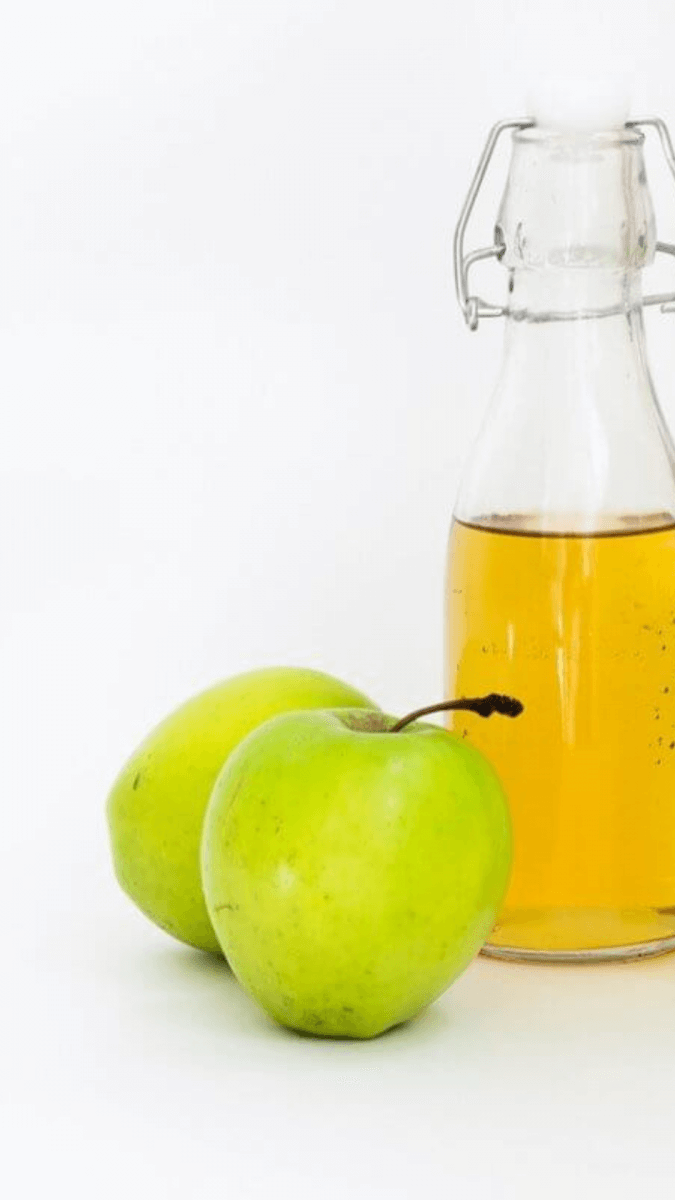
Non-alcoholic Brandy Extract
Non-Alcoholic Brandy Extract is perhaps the closest match to brandy in terms of flavor. It contains the essence of brandy without the alcohol. You can typically use it in a 1:1 ratio in recipes.
Non-alcoholic brandy extract can indeed be a good substitute for brandy in cooking and baking when you want to preserve the brandy flavor without the alcohol content. Here’s how you can effectively use it:
- Flavor Retention: Non-alcoholic brandy extract is designed to capture the essence and flavor of brandy without the alcohol. It’s an excellent choice if you want to maintain the brandy’s distinctive taste in your recipes.
- Desserts: In baking, particularly for recipes like fruitcakes, puddings, or sauces, non-alcoholic brandy extract can be a great alternative. It will provide the brandy flavor without affecting the texture or alcohol content of your dishes.
- Saucy Dishes: When a recipe calls for brandy to deglaze a pan or add depth to a sauce, the extract can serve this purpose effectively. It adds the flavor without the alcohol’s volatility.
Remember that non-alcoholic brandy extract is highly concentrated, so you’ll need much less of it compared to regular brandy. Start with a small amount and taste as you go, gradually adding more if needed. This way, you can achieve the desired brandy flavor while maintaining control over the intensity. It’s a fantastic tool for adding that brandy essence to your cooking and baking adventures.

White Grape Juice
Another suitable alternative is white grape juice. Use it to add a touch of sweetness and fruitiness to your dishes, especially if you’re making desserts.
White grape juice can be a suitable substitute for brandy in cooking and baking, especially when you want to mimic the fruity and slightly sweet notes that brandy imparts to a recipe. Here’s how you can effectively use white grape juice as a substitute:
- Fruity Desserts: White grape juice works well in desserts where brandy contributes a fruity and sweet undertone, such as fruitcakes, custards, or poached fruits. It can maintain the desired flavor profile while keeping your dish non-alcoholic.
- Deglazing: In savory dishes that require brandy for deglazing, white grape juice can serve as a flavorful alternative. It can help create delicious pan sauces for poultry, pork, or vegetables.
- Sauces and Glazes: For recipes like glazed ham or chicken dishes, where brandy adds complexity and a touch of sweetness, white grape juice can be a suitable substitution.
Keep in mind that white grape juice, like other fruit juices, can be sweeter than brandy. Adjust the quantity to match your recipe’s intended taste, and consider adding a splash of lemon juice or vinegar to mimic some of the acidity that brandy can provide. Using white grape juice can provide a delightful fruity element to your cooking and baking while keeping it alcohol-free for a broader audience.
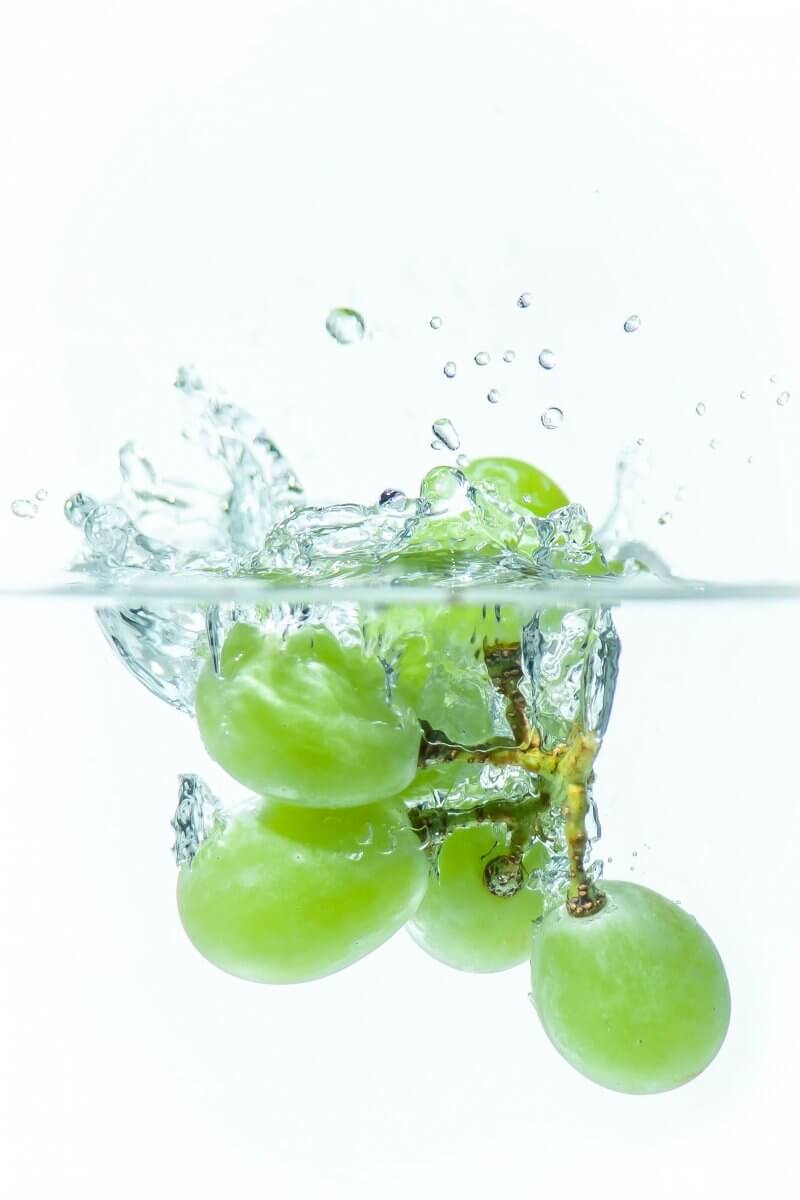
Fruit Preserves or Jams
You can use fruit preserves or jam in some recipes to impart both sweetness and fruitiness. Apricot or raspberry preserves are excellent choices.
Fruit preserves and jams can be a creative and flavorful substitute for brandy in certain cooking and baking recipes, especially those where you want to introduce sweetness and fruitiness. Here’s how you can use them effectively:
- Sweet Desserts: In dessert recipes, such as fruitcakes, tarts, or pies, fruit preserves and jams can work as a sweet replacement for brandy. They add fruit flavors and sweetness while enhancing the overall taste of your dishes.
- Glazes and Sauces: Fruit preserves or jams can be used to make glazes and sauces for savory dishes. They can provide a delightful balance of sweetness and acidity, which can complement dishes like roasted meats or grilled poultry.
- Marinades: For recipes that call for brandy in meat or poultry marinades, fruit preserves or jams can add both sweetness and flavor. They can help tenderize and infuse your protein with delicious fruity notes.
Keep in mind that preserves and jams are typically thicker and sweeter than brandy, so you may need to adjust other ingredients accordingly to maintain the desired consistency and sweetness level. Experimentation is key, allowing you to add unique twists with these fruity substitutes in your cooking and baking endeavors.
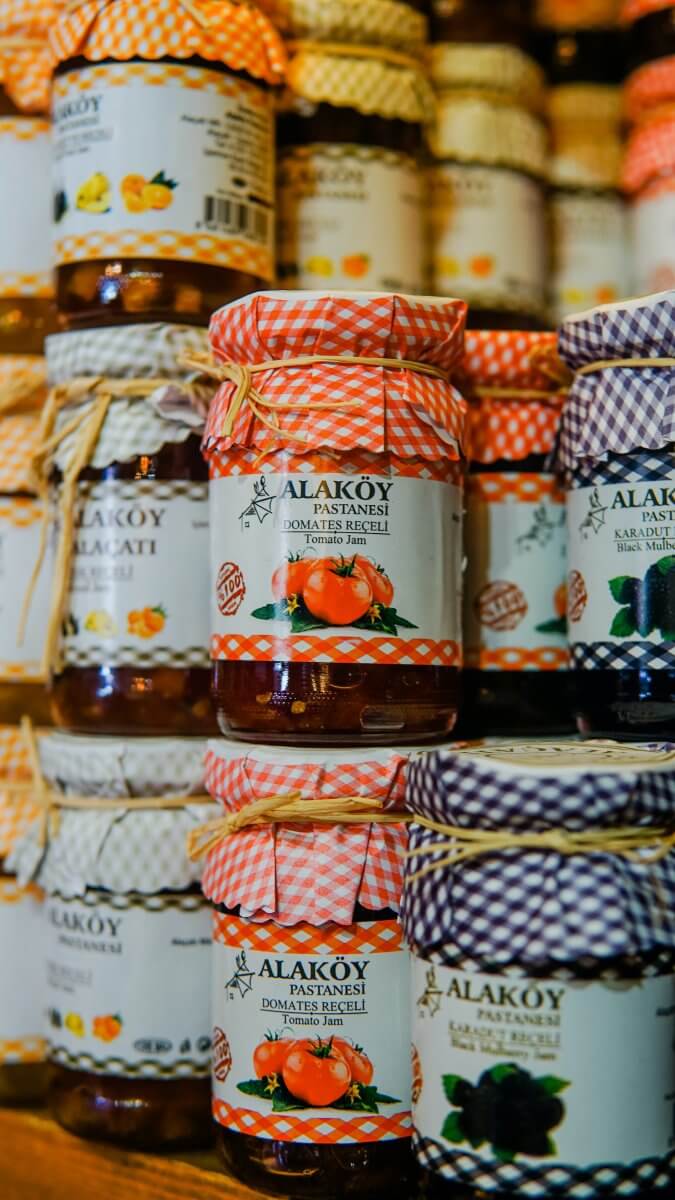
Orange or Lemon Juice
In recipes where the citrusy kick of brandy is needed, fresh orange or lemon juice can work as a vibrant substitute. Adjust the quantity to taste.
Orange or lemon juice can work as a good substitute for brandy in certain cooking and baking recipes, especially when you want to introduce citrusy notes and acidity. Here’s how to effectively use them:
- Citrus-Infused Desserts: In baking, both orange and lemon juice can enhance the flavor of desserts like cakes, muffins, and glazes. They provide a bright and refreshing element, which can be a delightful alternative to the richness of brandy.
- Sauces and Marinades: When a recipe calls for brandy to deglaze a pan or add depth to a sauce, citrus juice can serve as a flavorful replacement. It adds acidity and a citrusy zing, which can work well in savory dishes like chicken or seafood.
- Fruit-Based Dishes: For recipes that benefit from a citrusy twist, such as fruit salads or poached fruits, orange or lemon juice can be a suitable substitution. They complement the natural sweetness of the fruits.
Remember that citrus juice is more acidic than brandy, so you may need to adjust other ingredients in the recipe, like sugar or additional liquids, to maintain the desired balance. Using orange or lemon juice can infuse a vibrant and fresh character into your cooking and baking, offering a tangy alternative for you to enjoy.

Stock or Broth
In savory dishes, such as sauces and gravies, you can replace brandy with stock or broth for the liquid component. It won’t mimic the flavor, but it can provide the necessary moisture and depth.
Stock or broth is not a direct substitute for brandy in cooking and baking because they have fundamentally different flavors and characteristics. Brandy is an alcoholic spirit that adds complexity and a unique taste to recipes. However, stock or broth is typically used as a liquid base to build savory flavors. However, there are situations where you might consider using stock or broth as a partial substitute:
- Deglazing: If a recipe calls for brandy to deglaze a pan and create a flavorful sauce, you can use stock or broth as a substitute. It won’t provide the same depth of flavor as brandy, but it can help extract and incorporate the browned bits from the pan into your sauce.
- Savory Dishes: In some savory recipes, like braises or stews, where brandy is used to add richness and complexity, you can use a combination of stock or broth along with other flavor enhancers, such as herbs, spices, and aromatics, to achieve a robust taste.
Keep in mind that stock or broth won’t replicate the unique characteristics of brandy, such as its alcohol content and fruity undertones. It’s more of a workaround when you need a liquid component for deglazing or enhancing the savory aspects of your dish. For baking or recipes that heavily rely on brandy’s distinct flavor, it’s best to explore some of other substitutes we have covered.
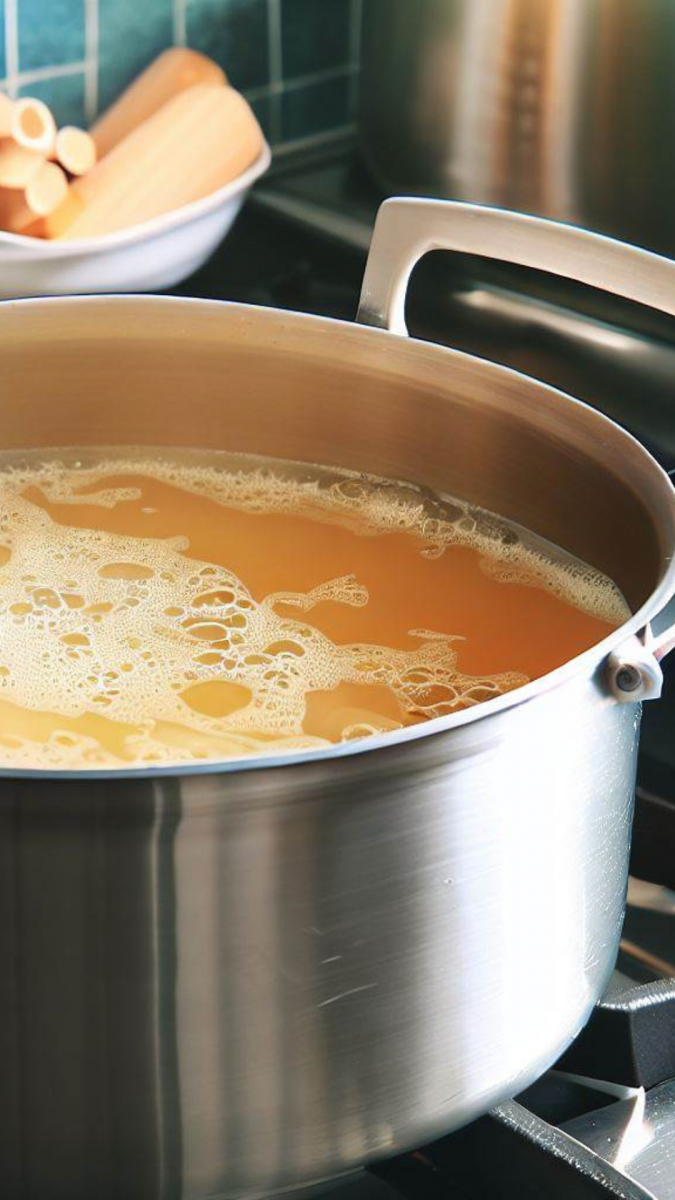
Summary for Brandy substitutes
Okay – that’s you all sorted with suitable substitutes for brandy.
Here’s a quick summary of the various substitutes for brandy in cooking and baking that we have listed above:
- Whiskey: Whiskey can be a great substitute for brandy, especially in recipes where you want a rich and complex flavor. Adjust the quantity to match the recipe’s intent.
- Rum: Rum works well as a brandy substitute, particularly in desserts and sauces. Consider the recipe and the type of rum you use for the best results.
- Red or White Wine: Both red and white wines can replace brandy in cooking, depending on your dish. Red wine for rich and savory dishes, white wine for lighter, more delicate ones.
- Vodka: Use Vodka as a neutral substitute for brandy in recipes where the alcohol’s flavor isn’t crucial.
- Gin: Gin can provide a unique herbal and floral twist to your dishes, making it suitable for certain savory recipes and cocktail-inspired desserts.
- Bourbon: Bourbon is excellent for adding a sweet and smoky flavor to your cooking and baking. This works well in desserts and savory dishes.
- Apple or Pear Juice: Use these fruit juices as a substitute, especially in recipes where brandy contributes fruity and sweet notes.
- Non-Alcoholic Brandy Extract: Non-alcoholic brandy extract retains the brandy flavor without the alcohol and is suitable for maintaining brandy’s essence in your dishes.
- White Grape Juice: White grape juice can provide a fruity and slightly sweet alternative to brandy. Ideal for desserts and savory recipes.
- Fruit Preserves and Jams: Fruit preserves and jams can bring sweetness and fruitiness to your recipes. This makes them a creative substitution, especially in desserts and glazes.
- Orange or Lemon Juice: Citrus juices can add a citrusy zing and acidity to your dishes. This means they are suitable for desserts, sauces, and fruit-based recipes.
- Stock or Broth: While not a direct substitute, you can use stock or broth in savory dishes as a workaround. Use for deglazing pans and enhancing savory flavors.
Remember to adjust the quantity and consider the specific flavor profile of your recipe when choosing the most suitable substitute for brandy. Each option can bring its own unique twist to your cooking and baking adventures.
We have gathered together a lot more facts on ingredients such as herbs, spices, oils, nuts, etc. if you would like to learn some more.
Or if you need to swap out another ingredient have a look at our Substitutes section.
Table of Contents
- What is the best substitute for Brandy ?
- What is brandy?
- Where can I buy Brandy?
- What can I substitute for Brandy?
- Brandy substitutes
- Whiskey as a Brandy substitute
- Rum as a Brandy substitute
- Wine as a Brandy substitute
- Vodka as a Brandy substitute
- Gin as a Brandy substitute
- Bourbon as a Brandy substitute
- Apple or Pear Juice
- Non-alcoholic Brandy Extract
- White Grape Juice
- Fruit Preserves or Jams
- Orange or Lemon Juice
- Stock or Broth
- Summary for Brandy substitutes

